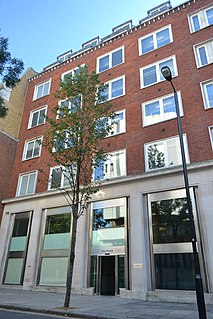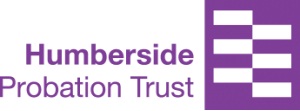
Penology is a sub-component of criminology that deals with the philosophy and practice of various societies in their attempts to repress criminal activities, and satisfy public opinion via an appropriate treatment regime for persons convicted of criminal offences.
Parole is the early release of a prisoner who agrees to abide by certain conditions, originating from the French parole. The term became associated during the Middle Ages with the release of prisoners who gave their word.

The Department of Corrections (Corrections) is the public service department of New Zealand charged with managing the New Zealand corrections system. Corrections' role and functions were defined and clarified with the passing of the Corrections Act 2004. In early 2006, Corrections officially adopted the Māori name Ara Poutama Aotearoa.

Her Majesty's Prison and Probation Service is an executive agency of the Ministry of Justice (MOJ) responsible for the correctional services in England and Wales. It was created in 2004 as the National Offender Management Service (NOMS) by combining parts of both of the headquarters of the National Probation Service and Her Majesty's Prison Service with some existing Home Office functions. In 2017, some of the agency's functions transferred to the Ministry of Justice and it received its current name.
Probation and Parole Officers play a role in the criminal justice systems by supervising offenders released from prison or sentenced to non-custodial sanctions such as community service. In some jurisdictions probation and parole officers are involved in presenting reports on offenders and making sentencing recommendation to courts of law.

The Scottish Prison Service (SPS) is an executive agency of the Scottish Government tasked with managing prisons and Young Offender Institutions.

The London Community Rehabilitation Company was launched on 1 June 2014. Formerly part of the London Probation Trust, is a law enforcement agency that works alongside the National Probation Service (NPS).

Working Links was an outsourcing subcontractor established in 2000 as a public, private and voluntary company that provided welfare services and help with employability. It was acquired by the investment group Aurelius in June 2016.
Lancashire Probation Trust is a criminal justice agency responsible for punishing and rehabilitating offenders in Lancashire, England.
Rehabilitation policies are those that intend to reform criminal offenders rather than punish them or segregate them from the greater community.
Private probation is the contracting of probation, including rehabilitative services and supervision, to private agencies. These include non-profit organizations and for-profit programs. The Salvation Army's misdemeanor probation services initiated in 1975, condoned by the state of Florida, is considered to be among the first private probation services. The private probation industry grew in 1992, when "local and county courts began outsourcing misdemeanor probation cases to private companies to alleviate pressure on overburdened state probation officers."

Humberside Probation Trust was a criminal justice agency which protects the public by ensuring offenders are punished and rehabilitated. Humberside was one of 35 probation trusts within England and Wales that were part of the National Offender Management Service (NOMS) and a department of the Ministry of Justice.
Wales Community Rehabilitation Company was formed on 1 June 2014 at the same time as the National Probation Service in England and Wales.
Bristol, Gloucestershire, Somerset and Wiltshire Community Rehabilitation Company was formed on 1 June 2014 during Government reforms to probation services. During the reform, Avon and Somerset Probation Trust, Gloucestershire Probation Trust and Wiltshire Probation Trust were merged to form BGSW CRC which is owned and run by the private company Working Links.
The Georgia Department of Community Supervision (DCS) is an executive branch agency of the U.S. state of Georgia. DCS is headquartered in downtown Atlanta with additional field offices throughout the state. DCS is tasked with: the supervision of felony probationers and parolees; the oversight of adult misdemeanor probation providers; and, beginning July 1, 2016, the supervision of certain Class A and B juvenile offenders. In addition, the Governor's Office of Transition, Support and Reentry (GOTSR) operates under the umbrella of DCS, and DCS provides administrative support to the Georgia Commission on Family Violence (GCFV).
Seetec is a public and business service provider in the UK and Ireland. Founded in 1984 as a company limited by guarantee and registered charity, Seetec was originally established to deliver IT training to unemployed people in the local community through government funded and private provision. Seetec has since expanded to deliver a variety of services within the skills, employability, justice and health and well-being sectors.
Sarah Payne is the head of the National Offender Management Service in Wales, previously having worked as the chief executive of the Wales Probation Trust. Prior to her probation work, she was chief executive of the charity YWCA England and Wales. She was an area manager and a governor in HM Prison Service, having entered the service directly from university on a graduate scheme.












